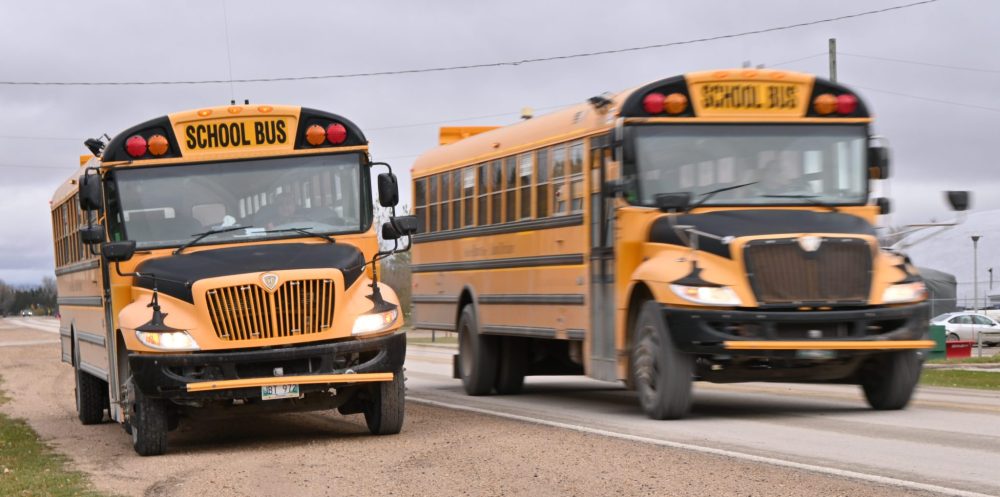Electric bus plan loses spark in SRSD
Advertisement
Hey there, time traveller!
This article was published 26/10/2024 (204 days ago), so information in it may no longer be current.
Seine River School Division will be shelving a plan to go green with their bus fleet, at least for now.
The division cancelled their plan of presenting a motion to ultimately get electric school buses at their Tuesday board meeting.
The board has addressed the item three times this school year, at the Sept. 24, Oct. 8 and now Oct. 22 board meetings in Lorette.

SRSD’s decision came after hearing new information from the Pupil Transportation Unit on the condition of buses tested during the winter.
The division was initially planning on presenting their motion at the annual convention in March, which they also planned for a previous annual meeting but missed an application cutoff. At the time, school divisions were allowed to buy buses and drive them, but without students on board, which SRSD’s motion then focused on.
The province has since removed that rule but is still discouraging the use because of Manitoba’s cold winter temperatures.
Interim superintendent Reg Klassen said in a phone interview that the current recommendations aren’t great for rural divisions.
“Currently some of the recommendations are that buses like this are only used in urban settings, which for Seine River School Division doesn’t make sense because we are a rural school division,” said Klassen. “We would never move forward with something that isn’t absolutely safe.”
Trustee Gary Nelson (Ward 1) said in a phone interview the board’s initial push for electric buses is because they want to be a leader in reducing the division’s output of greenhouse gases.
“Our schools over the years have gotten greener, and certainly the transportation of our students… is something that we need to look at,” said Nelson. “We’ve got one of the biggest bus fleets in the province.”
“As far as large transportation vehicles, school buses are an ideal candidate for electric, because they operate for an hour to two hours in the morning, and an hour to two hours in the evening.”
Klassen said the cost of fuel, engine repair and noise pollution are also why the division wanted to switch over to electric buses.

“School divisions are trying to deal with the ever-increasing cost of transportation, as we move students around there’s always the desire to try and save money,” Klassen said. “Saving money means that we have more money for classrooms.”
He said the division doesn’t know how much they would save with the change but estimates the electric buses to cost a “somewhat similar” amount to gas ones. SRSD bought four gas buses in 2022, which cost $181,000 each.
Another problem is that manufacturers are only making buses with air brakes, instead of the current hydraulic system. Drivers would need to get air brake certification, which could cost a lot for the division. SRSD currently has 82 buses for 60 different routes.
Klassen said manufacturers will be making hydraulic system buses eventually.
The board said they can and likely will reevaluate electric buses when the current problems are addressed.
